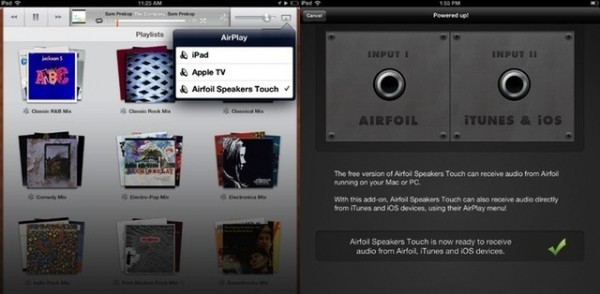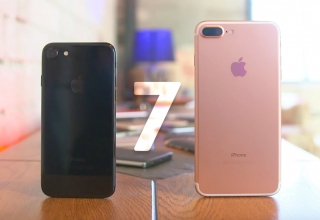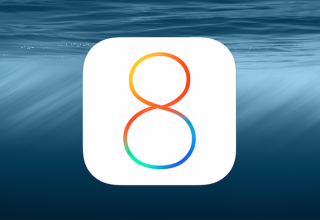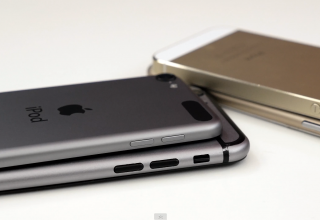Rogue Amoeba’s AirFoil Speakers Touch App was recently pulled from the App Store and there was a lot of speculation as to why it was removed. Rogue Amoeba said they didn’t violate any guidelines but Apple disagreed. Now the app is back, along with this official statement from Rogue Amoeba…
Version 3.0 of Rogue Amoeba’s AirFoil Speakers Touch featured a new “Enhanced Audio Receiving” component that allows your iOS device to become an AirPlay speaker. Apple wasn’t too fond of having their non-public APIs were implemented in the app so it was subsequently pulled from the App Store.
Well the app is back but not without a downside. The app has returned lacking the functionality that initially gave it the boot. Rogue Amoeba states that an Apple representative admitted that the situation “poorly handled” on Apple’s part.
Yesterday’s post on Rogue Amoeba’s blog:
Earlier this week, we had a chance to speak to Apple for the first time since they initially told us Airfoil Speakers Touch was being removed from the store two weeks ago. We’ve finally gotten some answers.
We now know that Apple’s issue with Airfoil Speakers Touch was specifically related to its recently-added ability to receive audio directly from iOS devices and iTunes. This was not properly conveyed in our initial conversations prior to the removal of Airfoil Speakers Touch from the store, and Apple’s representatives apologized for the fact that the entire process was “poorly handled”.
It’s clear that despite previous claims, Airfoil Speakers Touch was not in fact using private APIs. The Enhanced Audio Receiving add-on was implemented entirely from scratch and conformed to Apple’s published guidelines.
Regardless, Apple is using the authority they provide themselves in the guidelines and program license agreement to remove apps they don’t like. Specifically, they cited a provision in the App Store Review Guidelines which allows them to reject apps “for any content or behavior [they] believe is over the line”. That’s certainly disappointing, and frustrating, but it’s the nature of the system Apple has created.
If nothing else, we’re gratified to at least have come to an understanding that we didn’t violate the guidelines – Apple simply doesn’t want us providing this functionality in the App Store. Ultimately, if Apple doesn’t want it, we can’t provide it and users can’t have it.
You may be asking why Apple would want to prevent users from having this functionality. Only Apple can provide a full answer here. We do know that Airfoil Speakers Touch’s ability to receive audio directly from iTunes and iOS enabled some users to forgo purchasing expensive AirPlay hardware, hardware which Apple licenses. It seems Apple has chosen to use their gatekeeper powers to simply prevent competition.
So basically Apple can do whatever they want with any app in the App Store without explanation or reasoning. personally I find that policy a bit demeaning, but at the end of the day, where else would you distribute an App for iOS that any user can access. I understand Cydia is always an option, but not everyone (certainly not the total amount of iOS users) has a jailbroken device.
I agree, Apple could have handled the situation a lot better.
What do you think?
Source: The Next Web






